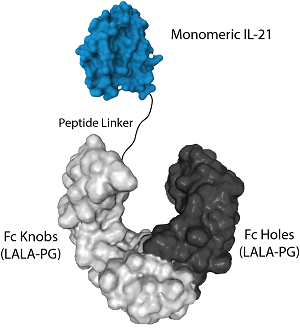Cookie preferences
This website uses cookies, which are necessary for the technical operation of the website and are always set. Other cookies, which increase the comfort when using this website, are used for direct advertising or to facilitate interaction with other websites and social networks, are only set with your consent.
Configuration
Technically required
These cookies are necessary for the basic functions of the shop.
"Allow all cookies" cookie
"Decline all cookies" cookie
CSRF token
Cookie preferences
Currency change
Customer-specific caching
FACT-Finder tracking
Individual prices
Selected shop
Session
Comfort functions
These cookies are used to make the shopping experience even more appealing, for example for the recognition of the visitor.
Note
Show the facebook fanpage in the right blod sidebar
Statistics & Tracking
Affiliate program
Conversion and usertracking via Google Tag Manager
Track device being used

| Item number | Size | Datasheet | Manual | SDS | Delivery time | Quantity | Price |
|---|---|---|---|---|---|---|---|
| AG-40B-0250-C050 | 50 µg | - | - |
3 - 9 business days* |
440.00€
|
If you have any questions, please use our Contact Form.
You can also order by e-mail: info@biomol.com
Larger quantity required? Request bulk
You can also order by e-mail: info@biomol.com
Larger quantity required? Request bulk
IL-21 is a monomeric 15 kDa cytokine, identified as a multifunctional cytokine principally... more
Product information "IL-21 (mouse) (monomeric):Fc (LALA-PG)-KIH (human) (rec.)"
IL-21 is a monomeric 15 kDa cytokine, identified as a multifunctional cytokine principally produced by follicular helper T (Tfh), T helper 17 (Th17) and natural killer (NK) cells, but also by CD8+ T cells. As a receptor for IL-21, IL-21R, a class I cytokine heterodimeric receptor, shares a common cytokine receptor gamma chain with other cytokine families, including IL-2, IL-4, IL-7, IL-9 and IL-15. The IL-21 receptor (IL-21R) is heterodimeric (composed of an alpha and ?-chain) and physiologically expressed on immune cells (T and B cells, macrophages, DCs, thymocytes and splenocytes). Upon binding to its receptor, IL-21 induces strong and sustained activation of STAT3, which is critical for its effects on B cell and T cell differentiation. IL-21 produced by follicular helper CD4 T cells (TFH) acts directly on B cells to generate high-affinity, class-switched antibodies. IL-21 is important for the maturation of T and B cells in Germinal Centers (GCs) and supports the formation of antigen-specific memory B cells and long-lived plasma cells. The formation of Th17 cells is promoted by IL-21. IL-21 is an important key factor in chronic inflammatory and in autoantibody-mediated skin diseases, where Th17, Th1, Tfh or B cells are critically involved. IL-21 is a promising immunotherapeutic agent for cancer. CD8 T cells expressing IL-21R fight cancer and drive autoimmune disease. IL-21 promotes maturation, enhances cytotoxicity, and induces the production of IFN- gamma and perforin by NK cells. IL-21 is known to directly induce apoptosis in certain types of lymphoma. Finally, IL-21 is used in adoptive transfer of in vitro expanded tumor antigen-specific CD8 + T cells (TILs cells) and IL-21 induced a long-lived memory phenotype compared to the cells not treated with IL-21. The protein IL-21 (mouse) (monomeric):Fc (LALA-PG)-KIH (human) (rec.) is produced by using two different vectors, one encoding for the IL-21 (mouse):Fc (LALA-PG) Knobs sequence (synthesizing a protein of 60kDa) and one encoding for the Fc (LALA-PG) Holes sequence (synthesizing a protein of 28kDa). Both vectors transfected into CHO cells produce both Fc (LALA-PG) molecules (Knobs-into-Holes technology, J.B. Ridgway, et al., Protein Eng. 9, 617 (1996)) required for dimerization of the Fc moieties and for secretion of the final protein IL-21 (mouse) (monomeric):Fc (LALA-PG)-KIH (human). The LALA-PG mutations inhibit binding to FcgammaRs and C1q while FcRn binding and Fc stability remain unaffected.
| Keywords: | Interleukin-21 (mouse) (monomeric):Fc (LALA-PG) Knobs-into-Holes (human) (rec.) |
| Supplier: | AdipoGen Life Sciences |
| Supplier-Nr: | AG-40B-0250 |
Properties
| Host: | Hamster cells |
| Species reactivity: | mouse |
| MW: | 54/28 kD |
| Format: | Solid |
Database Information
| KEGG ID : | K05434 | Matching products |
| UniProt ID : | Q9ES17 | Matching products |
| Gene ID : | GeneID 60505 | Matching products |
Handling & Safety
| Storage: | -20°C |
| Shipping: | +4°C (International: +4°C) |
Caution
Our products are for laboratory research use only: Not for administration to humans!
Our products are for laboratory research use only: Not for administration to humans!
Information about the product reference will follow.
more
You will get a certificate here
Viewed

